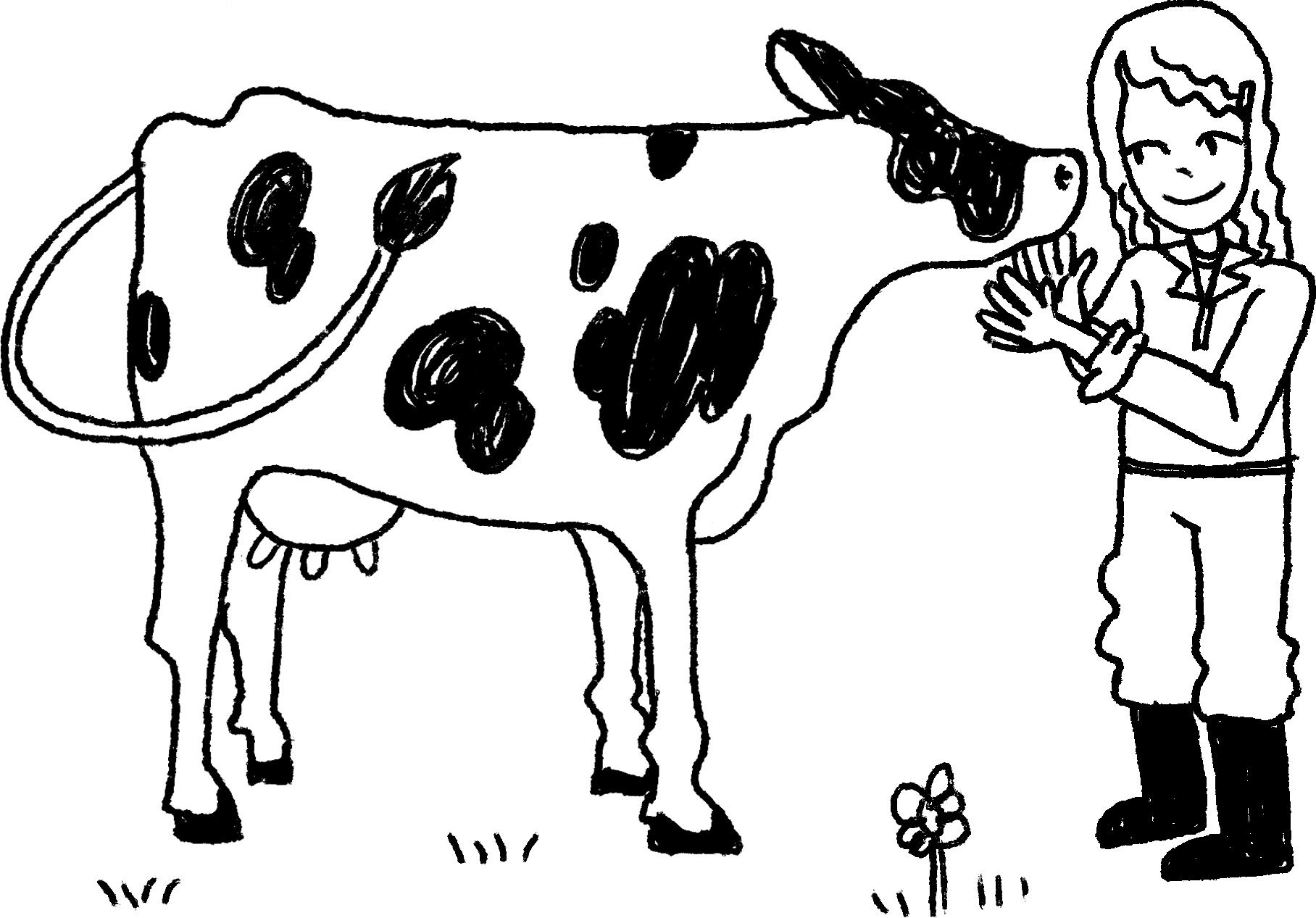Animal science is the multidisciplinary field that explores the biology, behavior, and management of animals, studying species as familiar as our companion and livestock animals and as exotic as what can be seen in a zoo.

Animal science
Macromolecules in dairy
What macromolecules are found in milk? How do these macromolecules differ between various types of milk products? How does milk rate as a complete nutritional food?
What do students do? Students compare the relative amounts of protein, lipids, sugar, and starch in different samples of dairy products.
What do students figure out? Milk is a nutritious food that naturally contains protein, fats and sugar.
Files
Macromolecules in animal feed
What are the differences in the macromolecules content of different animal foods? How do the amounts differ for different animals?
What do students do? Students test different animal foods for macromolecule content.
What do students figure out? Students compare macromolecule amounts and determine how those macromolecules impact the uses of animal food for the growth and development of different animals.
Files
Comparing human and cow diets
Why do humans and animals dietary needs change throughout their lifetimes?
What do students do? Students will compare a human diet to a total mixed ration of a lactating dairy cow.
What do students figure out? Students will realize that energy needs change depending on life stage and activity level.
Files
Ruminating on digestion
How does the cow’s multi-chambered stomach allow for breaking down cellulose-rich plant material?
What do students do? Students analyze digestion in ruminants.
What do students figure out? Digestion in ruminants include major differences when compared to humans; each chamber of the stomach performs different functions.
Files
Dairy cattle genetics
How do breeders predict which traits will be in offspring? How might biotechnology methods improve the process?
What do students do? Students use a model to learn about Punnett squares, then complete Punnett squares of crosses to show predictability in breeding.
What do students figure out? There are limitations in conventional breeding. (Traditional breeding takes more time and results are not always specific to the traits desired in the predicted ratios.)
Files
Enzyme action in ruminants
How does the pH and temperature of an environment affect enzyme activity?
What do students do? Students test various pH and temperatures to determine the effect on enzymes important to animal digestion.
What do students figure out? Enzymes are sensitive to changes in pH and temperature.
Files
Teacher background
This study of animals began thousands of years ago when livestock species such as cows, sheep, goats and chickens were domesticated to be used for food, labor, and companionship. In the beginning, advancements in animal science were driven by the need to improve livestock productivity, health, and reproduction to provide meat, milk, eggs, and other products to the growing population. In more recent years, animal scientists have contributed to major advancements in not only agriculture, but in veterinary medicine, wildlife conservation, and even public health.
Animal nutrition is a focus within animal science, helping us understand how animals obtain and digest nutrients essential for growth, health, and in some cases, the production of items like milk and eggs. Early stages of animal nutrition were based largely on observation, as well as trial and error with feed ingredients available to farmers. Nutritionists showed that animals, like humans, require a balanced diet including proteins, fats, carbohydrates, vitamins, and minerals to maintain health and productivity. This led to more specialized feeding practices that improved growth rates, reproductive success, and overall health.
Nutritionists now study the complex digestive systems of different animals to understand their unique dietary needs. For example, cows and sheep are fed different types of food than chickens or dogs. By using advanced technology, local and unique feed ingredients, and precision feeding techniques, scientists can create customized diets for livestock and pets alike, improving their overall well-being while minimizing waste.
Within the last 20 years, the future of animal science has been shaped by global challenges like climate change, food security and biodiversity conservation which are likely to play a significant role in how we care for animals. Using technological advancements such as sensors and data analytics to optimize animal health and productivity will continue to help farmers to face these challenges. The field of animal science also works collaboratively to advance other scientific fields such as environmental science, food science, biomedical science, computer science, and engineering. This has resulted in innovations such as vaccines for humans and animals, equipment to turn manure into electricity, and methods to keep food products safe for consumption. While the field of animal science has deep roots in supporting advancements in agriculture, animal scientists are also dedicated to researching new ways to care for our companion animals, protect our local and global wildlife, and support other scientific fields to improve our personal health.
Next Generation Science Standards
Join our email list
Sign up for the Nourish the Future mailing list: Be the first to hear about upcoming workshops and new curriculum and resources!